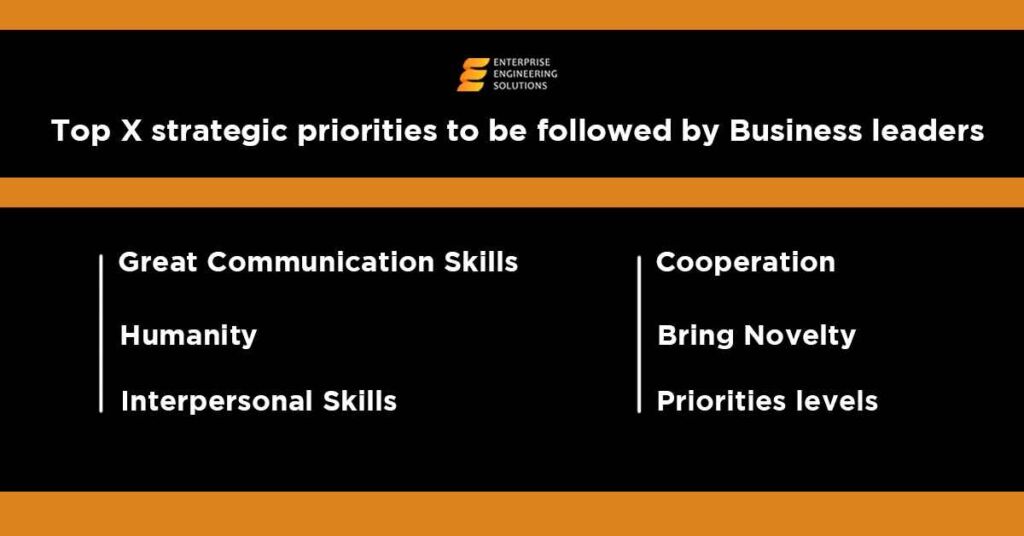If you can encourage and stimulate people, you are most likely pursuing a career as a company leader. What actions can you do to improve your leadership effectiveness? Is leadership a talent that can be taught, or is it something that can be perfected?
When we talk about the business leader, we can say that business leadership is a central position of some businessmen. For every company to succeed, leadership is critical. A company will not succeed without competent leadership.
EES has a professional team to carry out comprehensive data analytics & business intelligence consulting, assisting you in making efficient and profitable business decisions. We have the right tools to help organizations organize and analyze finances to boost performance. Our solutions are affordable, manageable, and scalable based on straightforward business intelligence software.
A strong leader will contribute to an organization’s success by ensuring that it achieves its objectives and acting forcefully to overcome obstacles and succeed. Business leaders interact with internal and external stakeholders. They are often referred to as the “face” of their organization. They motivate and encourage workers while also interacting with shareholders and consumers — their impact can make or break their organization.
Strategic Application
Business intelligence can help any organization acquire perfect long-term goals, aims, and objectives for the company’s prospect and help improve step-by-step guidance for achieving measurable success in these objectives. It discusses strategic priorities and how they can be assimilated into a strategic plan.
The purposes of business strategic priorities for your company are defined as the hopes to acquire over a specific time. They are frequently the values or creativities that the organization wants to develop first from a more significant number of tasks.
Organizations may have similar business strategic priorities in an industry, but they are generally unique to a specific organization and its objectives. Internal and external surroundings, strategic importance for a company may be adjusted. For a successful business company, strategic priorities play an essential role. These priorities often have a complete list of their goals and tasks.
Essential Business Strategic Priorities for A Leader
The leader plays a very significant role in any organization. For effective leadership, you need to set some priorities. Here, we will discuss some essential business strategic priorities that business leaders should follow.

Great Communication Skills
Undoubtedly, effective communication is one of the most vital strategies. You may have a perfect idea for what you do, but it’s almost unbelievable to perform if you can’t tell your team or colleagues. By strengthening your ability to communicate your goals clearly and link them to your team, you can bring together everyone’s efforts. More specifically, your team must be involved and support your strategic goals and objectives to succeed. Communicate your vision!
Communication also includes “easier skill” practices such as maintaining an open-door policy and regular meetings with team members. It helps to know anything that happens in the office.
Humanity
Humanity is one of the most basic and respected business strategic priorities for leadership. Modest leaders acknowledge errors, accept their mistakes, apologize and always share credit if compulsory. It makes you more “human” and relevant.
It is simply a good practice to empower and recompense others rather than act as the most intelligent person in the room. Not only with other persons but also with your strategy and procedures, practice humanity.
If you want to be open to knowledge, you must leave your ego at your door. This is how you can develop your organization at a faster rate.
Interpersonal Skills
Leadership needs strong interpersonal skills to succeed. Interpersonal skills include the ability to interact individually, in groups, and with staff.
Leaders need to know how to interact masterfully and build positive relations with different levels of employees, boards, partners, suppliers, external networks, and customers to achieve maximum business output.
Cooperation
A cooperative leadership approach is powerful because it naturally makes your organization transparent. If you’re connected and sincerely interested in working with your team, you know what you think and vice versa.
Cooperation leads to trust, and your team will likely support your vision. If you are not buying into this strategic plan, it won’t be effective. People want to own what they’re doing.
Priorities Levels
Instead of classifying your priorities into a numbered list, consider assigning each one a value based on the objective factors, resources, and timing. Knowing these priority levels can help you decide what goals you should include in your strategic plan.
A key priority is a strategic priority that you need to achieve within a particular time. Critical business strategic priorities use all the resources available to achieve a goal.
Delivery to a customer may be an example of crucial importance. When you pledge to deliver 300,000 units to a customer in the third week of the month, you will ensure that all your resources meet that time goal.
Bring Novelty
It’s easy to get stuck when you’ve been in a company for years or have been working in the same career for some time. Being a solid leader demands practicality and realism, but it also needs an eye for novelty and a vision to implement. Adjustment and adaptation to current business or economic environments are worthwhile to promote.
Conclusion
All strategic business priorities should be compulsory for the business leaders of any organization, and its purpose is to create and establish an operational plan. A strategic plan makes the current statement of the company and defines its objective instruction as well as other activities.





